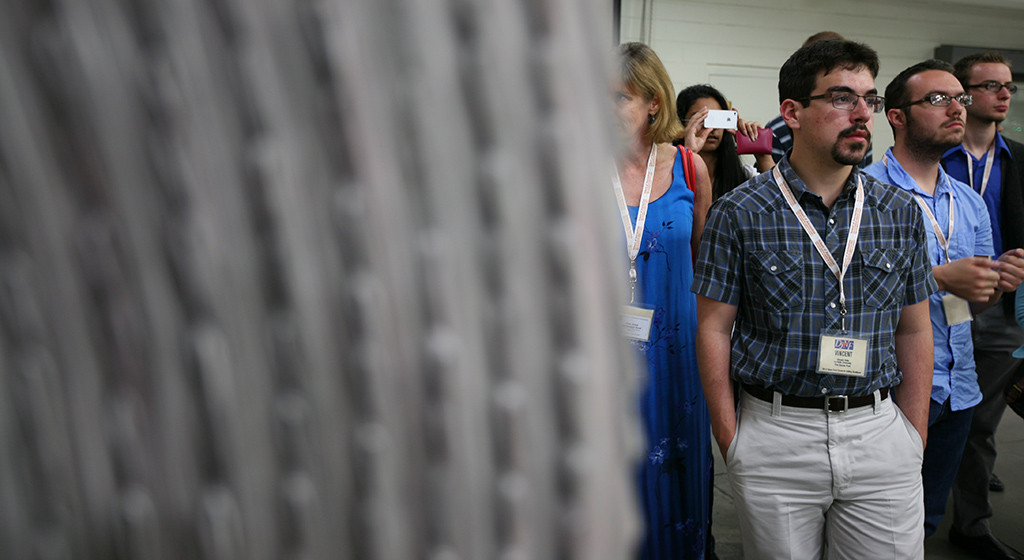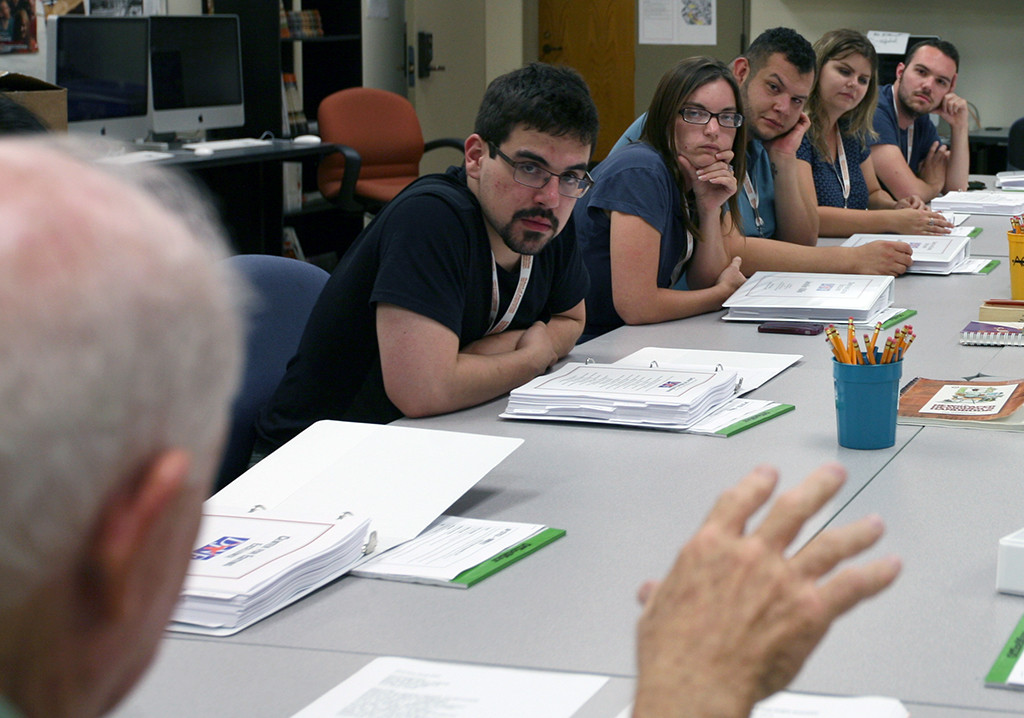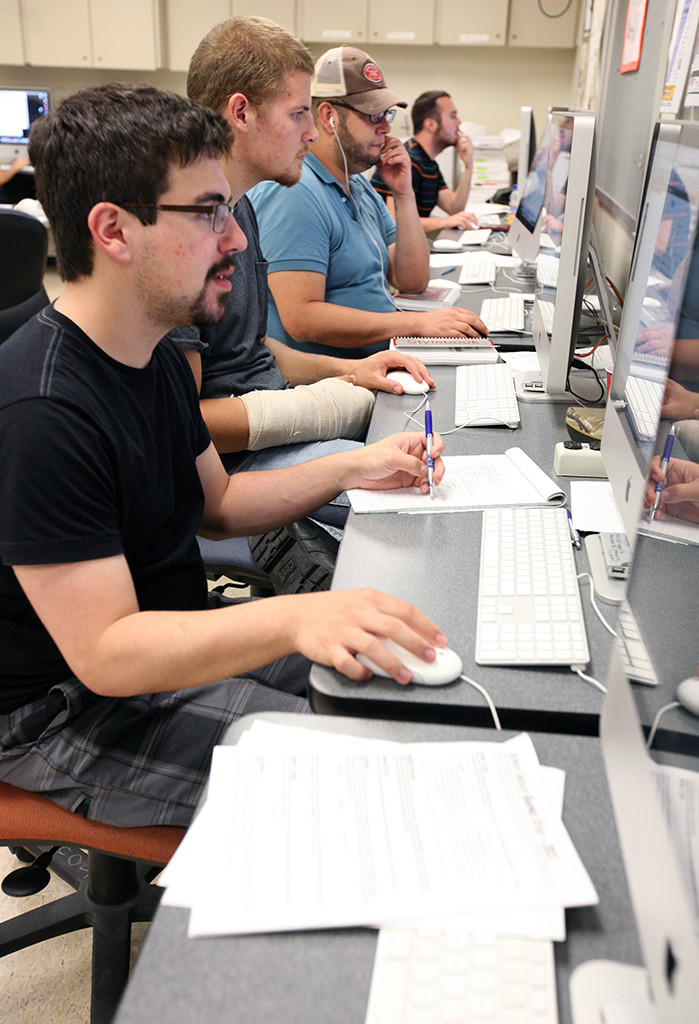Young journo is a strong advocate for value of internships
By Bradley Wilson
CMR Managing Editor
Vinny Vella is a journalist from Philadelphia. He graduated from La Salle University in 2012 with a bachelor’s in communication and a minor in marketing. He is working as the night cops-and-crime beat reporter for the Philadelphia Daily News.
But at age 22, while working as a Dow Jones News Fund intern at the Denver Post, Vella participated in editing stories on the theater shooting in Aurora, Colorado and got his name on a Pulitzer Prize. In the submission for the prize, Editor Gregory Moore said, “Once again, Colorado would be ground zero to mass murder.”
His story just isn’t that different from many recent college graduates completing internships, job hunting and discovering the power of quality journalism. Except, of course, he has his name on a Pulitzer Prize.
Follow Vinny on Twitter @Vellastrations and read some of his impressions on the importance of gaining real-world experience outside the classroom.

Let’s start by backing up to college. What did you do in college that influenced your career?
You got a communication degree. What’s the value of the degree?
It’s a liberal-arts degree; it shows I’m “well-rounded.” But, cynicism aside, I know people who went to Columbia and struggled to find a job in a major market. Moral here is that where you go to college doesn’t matter as much as what you do while you’re there. It’s extremely generous to say my alma mater has a journalism program. But what it did have was an excellent internship program, one that connected me to the two major dailies in my city.

Even beyond involvement on campus, you took advantage of some internship opportunities. Tell me about the Philadelphia Inquirer and what you learned there.
Spending time at the Inquirer was liberating; it showed me that my dreams of being a professional, big-city reporter could be more than just dreams. I learned how to generate story ideas, how to navigate the temper of an editor who has eight hours to do 14 hours’ worth of work, and how to suck it up when said editor rips your copy to ribbons.
Honestly, my favorite internship wasn’t there. It was at the Pocono Record, a tiny regional paper that I grew up reading in Northeastern Pennsylvania. The editor there, Chris Mele, was a mentor that any cub reporter would kill for; I still ask him for advice. The Record was my first taste of the daily demands of newspaper life. Mele also taught me how to investigate. Under his tutelage I produced a number of award winning pieces for the Record, ranging from an expose on how the county’s bridges were deteriorating to how female public employees still make considerably less than their male counterparts.
You also interned at the Denver Post. What were the lessons you learned there?

The Post showed me what it’s like to be thrust into a story that has national attention. How to properly plan coverage of an issue that continues to evolve, how to find angles that are compelling beyond the base facts of what happened. To this day, I’m still amazed at how quickly the staff plumbed the depths of those stories.
You also had some exciting things happen while at the Post. Tell me about them.
The answer to this refer heavily to my previous answer. The summer 2012 was one of the most tumultuous for the Mile High City in recent decades. When I landed in Denver in early June, devastating wildfires were tearing through the mountains nearby. Meanwhile, at the worst possible time, the paper’s ownership slashed the copy desk from about 12 people to just four, including me. I went from writing features cutlines in my first week on the job to writing front-page headlines.
And then James Eagan Holmes opened fire on a movie theater in the suburbs. I was drunk the night that happened, at a screening of the same movie in a theater around the corner from the Post. I had no idea what had happened until the next morning, when I woke up to texts and voicemails from everyone I knew.
My good friend Matt, who worked at the Post with me, still talks about that night and the days that followed: The hustle and determination that everyone on the staff had, trying to make sense of this maniac’s callous act.
And then, about a year later, after I had settled back on the East Coast, I got a call from my former editor telling me my name was going to appear on a Pulitzer Prize for breaking news, that the stories I had edited and helped lay out had won journalism’s highest honor.
I peaked at 22.
Would you recommend internships for other college students? Why/not?
It goes back to what I said above about “proof of concept.” Would you hire a tattoo artist who never tattooed anyone before? Who just picked up a needle and promised to do a good job? Or would you find the artist that carried a portfolio of his work with him?
What make your internships valuable to your career overall?
They give you experience that you simply can’t get in a classroom. College newspaper experience is great, but college newspaper newsrooms are run by college students who don’t have any idea how actual newsrooms are run. They’re a great launchpad, but they can’t sustain a career by themselves.
Internships allow you to put into practice what you’ve spent so much time discussing in a classroom, and also sharpen the skills you think you’ve perfected at your campus newspaper.
There is simply no substitute for an internship. And don’t rely on just one. I graduated with five under my belt, and did a sixth one in 2012 through Dow Jones News Fund after I received my diploma.
Wanna know what happened? I got a job with very minimal effort.
Because people knew who I was, and that’s important, too. Networking is another tenet of our industry: People trust proven brands. Because editors at the Daily News knew my work from when I was an intern, they felt comfortable hiring me. Simple as that.
Tell me a little bit about your job as a crime reporter now.
It’s exactly what I want to do with my life. I grew up in a rural area, where there were more trees than people. Working on this beat for a tabloid has been an eye opening experience, and I’m a better person for it. I’ve been exposed to sections of society that I never would have under other circumstances, and I’ve come to appreciate life in all forms. Beyond the juicy headlines there are real people who are suffering, hurting. To be able to help them in some small way means a lot to me. And if all I can do is remind people that those victims exist, that they have struggles just like the rest of us, then that’s fine with me. It’s still making an impact.
Many people are all doom and gloom about the future of the media. Others say there is no more important time to be involved in the production of quality journalism. Where do you stand? Why?
Now is a very crucial time to be involved in journalism. I’ve seen firsthand how company ownership will mercilessly cut staff and resources to make a bottom line while sacrificing quality content producers. It sucks; let’s not beat around the bush. But instead of giving up, let’s dig in and keep doing great work. Show the penny pinchers that they can’t kill our spirits.
The fact remains that quality journalism is a necessity for our society. And it’s another fact that journalists will continue to do what they’re doing, even if physical newspapers die out.
So I say stick with it. You won’t get rich do it, but you’ll never work a day in your life.
Finally, what advice would you have for college media advisers and students participating in their student media today?
Be respectful with each other, but be truthful. For advisers, don’t sugarcoat the reality that there aren’t many jobs, and that competition is tough. For students, shut up; you don’t know what you’re talking about. Listen to your adviser and ask questions. Again, theirs is free advice that you won’t get anywhere else at that level of detail.
